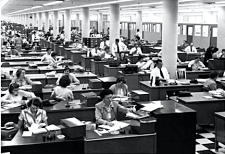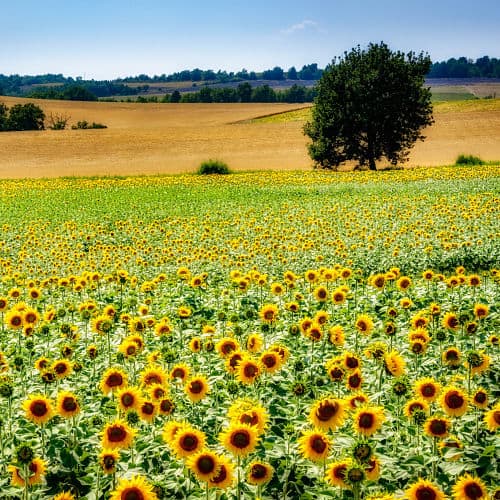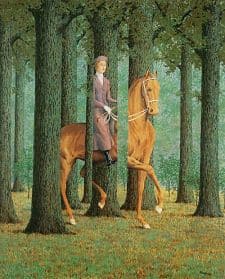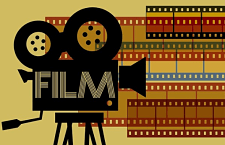Summer is coming… And with it, a brand new list of fabulous events! A workshop in Switzerland? A summer school in Romania? How about making a film? This summer promises to be instructive and exciting!
As always, if you want your event to feature in our next events list or if you want to write a short report, don’t hesitate to get in touch with our events assistant Aude at audef@allegralaboratory.net.
 Workshop: The Bureaucratization of Utopia: International governance, audit culture and administrative subjectivities in the 21st Century
Workshop: The Bureaucratization of Utopia: International governance, audit culture and administrative subjectivities in the 21st Century
29-30 June 2017, Graduate Institute Geneva, Switzerland
The twenty-five years since the end of the Cold War have been a historical watershed for the project of international governance embodied by the United Nations, a project forged from the tragedy of the Second World War and its unprecedented levels of violence. Indeed, the 1990s saw the multiplication of UN agencies, international laws and transnational human rights networks, all of which endorsing an agenda for improving the world and bringing about a new one in which the impregnability of state borders would be gradually replaced with the authority of international law. But if the post-Cold War was a giddy time of possibility, it is worth considering the present status of these ideals as the post-Cold War gives way to a world marked by chronic patterns of socioeconomic inequality which set limits on structural change in places where it is most needed.
How did we get there ? Why do organizations put in place in order to promote justice in the world seem unable of doing so ? The idea for this workshop comes from the realization of a certain disconnect between the progressive ideals upheld by institutions of global governance and the rather dull nature of the bureaucratic labour that constitutes their everyday. Building on the latest advancements in the anthropological study of bureaucracies, policy and audit cultures, this workshop examines global governance from the perspective of actors involved in international institutional processes. It uncovers the paradoxes, potentials and unexpected and surprising effects of mechanisms grounded in a wider social and political field and constituted through specific encounters, institutional codes, norms and knowledge practices, and documentary processes. It seeks to understand the reasons for which the great utopias of the past century have taken such complex bureaucratic forms and the ways in which these bureaucratic processes attempt to translate utopian ideals into tangible facts in the world. Moving away from Weberian accounts of bureaucracies as sites where the disenchantment of the world is best examplified, the workshop conceives bureaucratic administration as just another arena for social life and political action, an arena with both constraining and enabling potentialities.
Conveners: Julie Billaud and Alessandro Monsutti
Funded by the Swiss National Science Foundation, hosted by the Graduate Institute Geneva and co-organized with Allegra Lab.
Telciu Summer School 2nd edition: (Dis)Locating Europe: the East, the Other and the Rural
13-20 August 2017, Telciu village, Romania
The 2017 edition of the Telciu Summer School focuses on the historical, social and economical positionalities of peripheries and rurality in the context of a changing idea of Europe. What differing histories are able to confront the recent wave of isolationism and protectionism, the rise of European ethno-nationalisms and of polarizing ideas such as “two-speed Europe”, as well as the continuous encroachments on the commons, natural resources and subsistence economies? How do the “East”, the “South” and the “others” of Europe, including its internal and colonial others, redefine the meaning of Europe? The Telciu Summer School is interested in giving priority and documenting the different answers of local histories to global designs, imperial inheritances and state plans, connecting the locality of Telciu with significant projects of modernization and the regional and international histories of the participants to the Summer School. [more]
Deadline for application: 1 August 2017
Permanence: Anthropologies of what Stays: An Open Workshop
22-23 June 2017, University of Bristol, UK
In a historical, social, and political moment where change, flux, and uncertainty dominate public imagination and private lives, what stays and becomes permanent? How do certain ideas and events, practices and objects acquire permanency across regional and temporal boundaries? How is permanence guarded and nurtured, imposed and contested? When is permanence a value, and when is it a curse?
Exploring the concept of permanence from different historical, theoretical, and regional perspectives, this open workshop challenges us to think of permanence as both indigenous concept and theoretical lens for reimagining historical events, social and cultural process, and individual lives. [more]
This workshop is free and open to all.
Ethnographic Film Festival: Filming Labour and Precarity
End of November 2017, Athens, Greece
Since its very beginning, the Athens Ethnographic Film Festival has aimed at making the Festival accessible to wider audiences and promoting the educational and reflexive dimension of ethnographic cinema on social and political consideration. Thus, in 2014 the Festival introduced a themed section, which focuses on a different topic every year. This year’s tribute emphasizes on the various filmic approaches of work, labour and precarity and will be curated by anthropologists Dimitra Kofti (Max Planck Institute) and Mao Mollona (Goldsmiths College).
This year’s session is dedicated to films on labour, in an era of deepening precarity and deregulation of work. We invite film projects on work, labour, unemployment and scarcity of labour, unpaid labour, affective labour, inclusion and exclusion through work, migration and work, bondage labour, the experience of applying for jobs, the intertwinement of work with gender, ethnic and age inequality, all issues of great concern and debate today. [more]
Deadline for submission of film proposals: 1 July 2017
 Critical Legal Conference: Thinking Through and Beyond Catastrophe: Composing for a Common, Livable World
Critical Legal Conference: Thinking Through and Beyond Catastrophe: Composing for a Common, Livable World
1-3 September 2017, University of Warwick, England
The slowly unfolding catastrophe currently referred to as ‘Anthropocene’ generates a number of dire questions that we cannot even ask – let alone begin to answer – without deep thought. This panel asks how such deep thought might be possible in the face of the self-indulgent apocalypse narratives (Haraway), barbarism, infernal alternatives and sorcery (Stengers), and blind panic / desire to look away (Klein) that are engendered in catastrophic time. What creative practices and pathways can we cultivate to make thought possible?
In the face of this daunting line of questioning, this stream invites not so much answers, but potential pathways for teaching, learning, and thinking critically beyond current standards and norms. Papers from across the disciplines and outside of academia are welcome and may include either methods of thought or practice that have been tried, or theoretical possibilities that have been imagined, but not yet tried. Creative and unconventional thinking is encouraged. How might we stimulate critical self-reflection? In what ways can telling new stories – and, perhaps, teaching in ways that foster new criticisms – lead to new ideologies? And, perhaps most importantly, how might we engage in forms of collaborative resistance – both in thought, and, in practice – that are creative, inspirational, and even joyful? [more]
Deadline for submission of abstracts: 31 May 2017
 Summer Oral History Training: Amplifying Unheard Voices
Summer Oral History Training: Amplifying Unheard Voices
27-30 June 2017, Asian Art Museum, San Francisco
This unique four-day training highlights the power of personal narrative and provides educators, storytellers, and social justice advocates with the tools to conduct oral history projects in their classrooms and communities.
Workshop participants engage in an interactive process that introduces the skills, ethics, and social significance of creating oral history, as exemplified by Voice of Witness and other leading practitioners in the field.
This training is geared towards new and experienced practitioners from a variety of backgrounds, disciplines, and community settings. Past participants have included high school teachers, university professors, advocates, journalists, artists, and more. [more]
Deadline for registration: 10 June 2017
Featured image by Ade Russell (flickr, CC BY-NC-ND 2.0)





